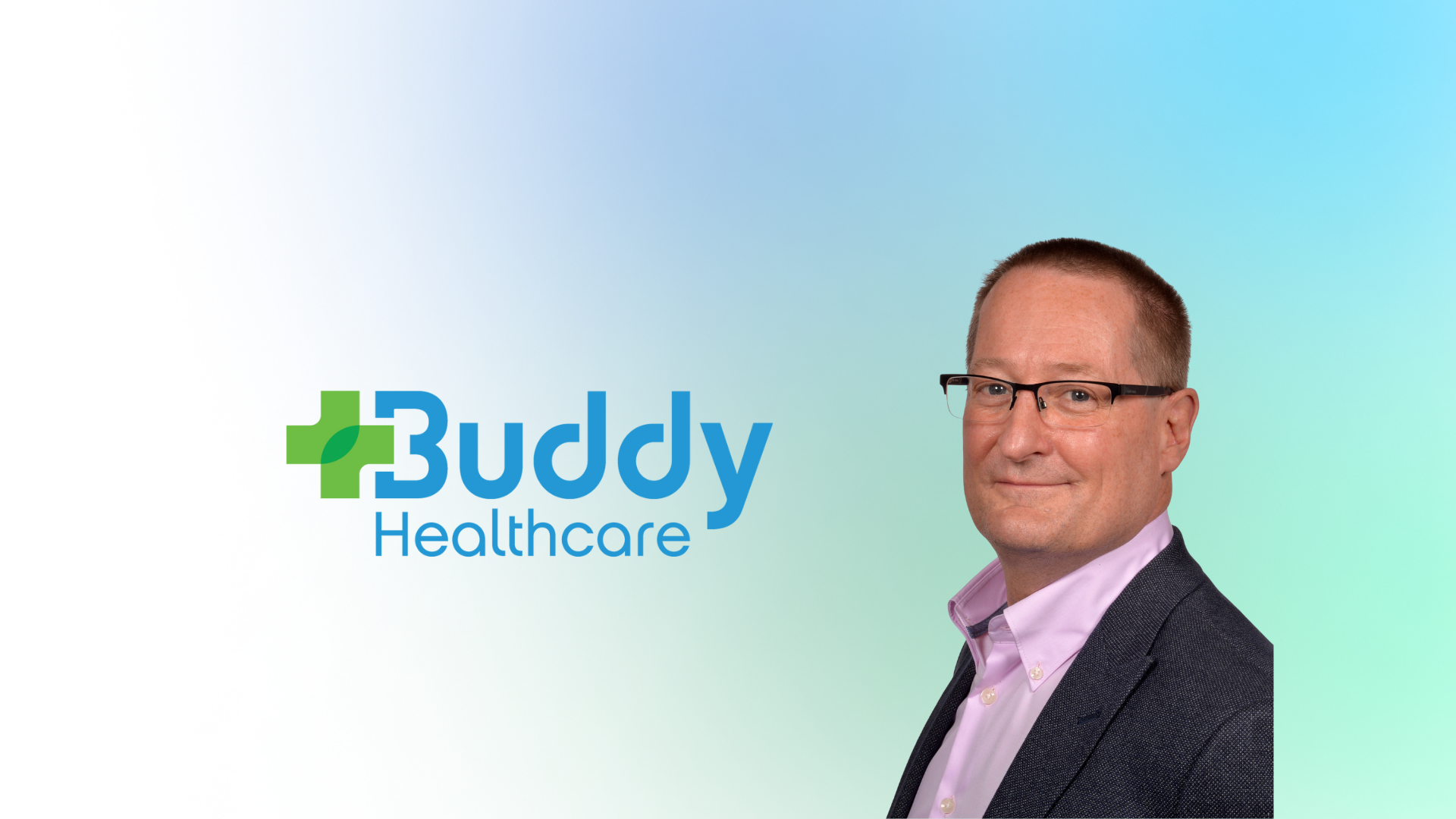A webinar supported by Buddy Healthcare explored the potential of its digital platform with clinical leaders from Scotland and Finland.
The platform, which supports a patient app and automated information and communication tools, can be used to improve convenience for patients, streamline pre- and post-op processes, and make best use of scarce clinical capacity as the NHS looks to recover waiting lists.
The NHS was under pressure before Covid-19, but it came out of the pandemic with a waiting list for elective care that is rising by 100,000 cases a month. As part of efforts to tackle the backlog, clinical teams will need to run their pre- and post-op processes as efficiently as possible, and make use of every bit of theatre capacity that is available.
Buddy Healthcare is a Finnish company that has developed a care coordination platform that can streamline and automate the entire perioperative pathway. The platform automatically sends patients pre-op assessment forms, pre-surgery advice, PROMS forms, and rehab instructions, based on the planned date of surgery.
Patients can complete forms, submit data and contact their clinical teams on an app, and clinical staff can review the information on a dashboard. Buddy implementations across Northern Europe have shown that this can cut unnecessary visits to the hospital, reduce the administrative burden on clinical teams, and help them pick up problems that might lead to a cancellation on the day.
Transforming pre-op processes in Fife
Dr Neil Shaw, a consultant anaesthetist in Fife, told a webinar supported by Buddy Healthcare that it can also help to identify patients who can be called in at short notice to fill slots. Although this wasn’t his initial reason for looking for a digital pre-op platform.
“When I started working with NHS Fife’s pre-assessment department, I quickly identified some major issues,” he said. “We lacked any digital presence. If I wanted to see notes about a patient, I had to wait until the morning of surgery unless I specifically requested them, which could still take days or even weeks.
“All of our patients were having to come into the hospital for pre-assessment, regardless of their fitness or otherwise, for surgery, which was impacting them financially, and us environmentally. And we were very paper-heavy; depending on the operation you were coming in for, we could generate between 50 and 80 sheets of A4 paper per visit.
“I thought it should be possible to digitise all of this.” Dr Shaw said he looked at a number of options, filled in a MoSCoW (must have, should have, could have, won’t have) assessment for his IT department, and decided the best option was an app called ELSIE that had been developed by NHS Lanarkshire, using Buddy Healthcare technology.
His team started using the new digital platform at the start of the year. Webinar attendees asked how digital exclusion had been addressed, and Dr Shaw said face-to-face appointments remain available, alongside telephone support. Patients can also get blood and other physical tests done at NHS Fife's rapidly developing network of community hubs.
Overall, patient satisfaction with the app is over 90%. Dr Shaw said that although he initially expected to “find patients with significant comorbidities, and to spend more time dealing with those issues ”, the “patient X” who really benefits from ELSIE is the patient who “is reasonably fit and well, with stable comorbid conditions.”
“They can complete the standard triage in their own time, so they can still attend work, avoid clashes with childcare or other caring responsibilities, and avoid the difficulty and cost of attending a hospital. Plus, it is allowing us to get more patients onto the waiting list: ready to go – and, as they used to say at another hospital I worked at, good to go.”
A company built on solving clinical challenges
Jussi Määttä, the founder and chief executive of Buddy Healthcare, explained that the journey to being able to do all this started back in 2015, when he was working for another Finnish IT company that wanted to work with a children’s hospital in America.
It had an outpatient surgery centre where nurses were spending up to 90 minutes on pre-op admin work, only for a high proportion of procedures to be cancelled. Meanwhile, follow-up was nonexistent. “I got interested in these challenges, came back to Finland, discussed them with a couple of hospitals here, learned they were quite universal, and founded Buddy Healthcare to solve them,” he said.
Initially, the company focused on paediatric surgery, but over time, it has built a platform that can be used in any speciality. “Our sweet spot is definitely providing a solution for surgery clinics, but we have very successful customer use-cases in other parts of the hospital, such as pain management, cancer care, psychiatry, and internal medicine,” he said.
The Buddy Healthcare platform can be hosted in the cloud and is certified as a medical device. Hospitals upload their own patient information and retain control of the data collected. “Whenever we start with a new hospital or department, we configure their pathways and processes in our software,” Määttä explained.
“We confirm when they want to send out information or follow-up tasks, and whenever the surgery day changes, the whole process is automatically built again. “It’s really important for there to be as much automation as possible, so communication is always up to date.”
This, Määttä added, is what sets the Buddy Healthcare approach apart from the patient portals that English NHS trusts are being encouraged to adopt to give patients access to basic appointment and contact information.
“A patient portal tends to be about the data that is in the hospital information system, which defines the patient flow from home to hospital,” he said. “Whereas our projects are always clinician-led. Clinicians define their processes, how they want to communicate with their patients, and how they want to care for them.”
Transforming cardiac care in Joensuu, Finland
Dr Tuomas Rissanen, a consultant cardiologist at the North Karelia Central Hospital in Joensuu, Finland, outlined how he has used the Buddy Healthcare platform to redesign a treatment pathway for patients with coronary artery disease that incorporates structured follow-up that was not possible previously.
“Finland is a very rural country,” he said. “As you all know, in northern Finland, there is an area called Lapland, and Santa Claus has to travel a long time to reach medical attention. Which means we need new solutions to care for patients. Particularly in my area, which has a very high burden of coronary artery disease.
“Like so many other areas, we have a shortage of cardiologists and cardiology nurses, so we needed to make the best use of their time. We needed to replace at least some of our physical appointments and phone calls with digital solutions,” he said.
“And we needed to improve secondary prevention [to reduce the risk of patients needing further acute treatment]. We needed to be able to identify these patients and support them better. The platform enables us to do that.”
A multi-disciplinary team designed the new pathway, with the support of Buddy Healthcare’s customer success team. In response to questions, Dr Rissanen said the whole process took around 18 months. International and Finnish PROMS forms indicate that patients who follow the pathway see their conditions and lives improve on a range of measures.
“We started using this pathway in March, and this summer, we received the first three-month questionnaires from the first patients on the pathway, and it looks very promising,” he said. “We are very excited about the feedback that we are receiving.”
You can watch the webinar recording here.



